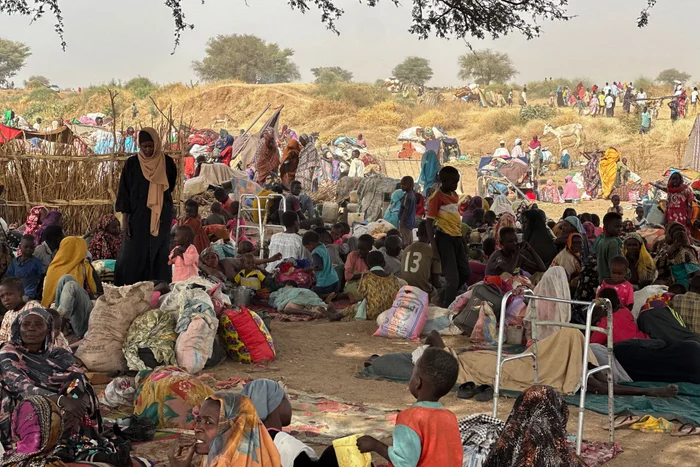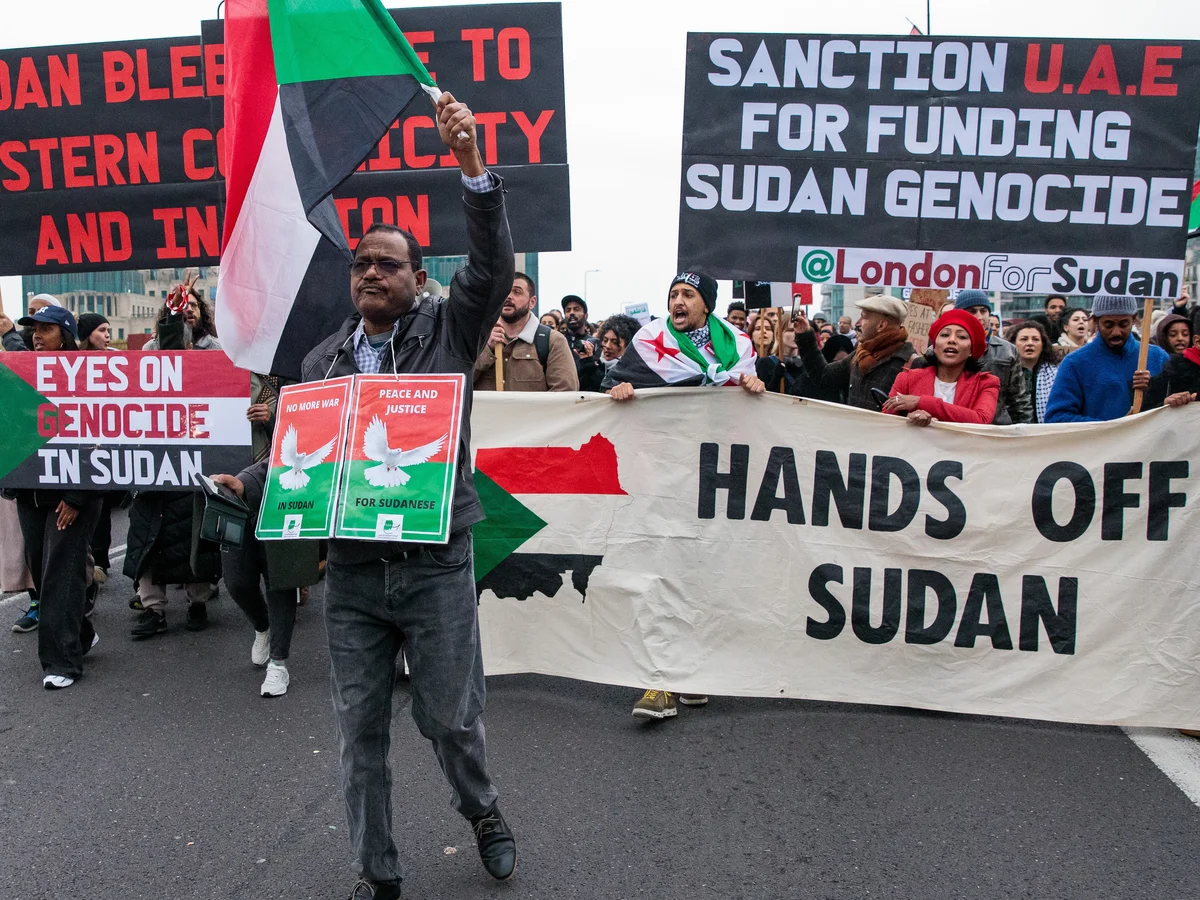The brutal civil war in Sudan, now in its third year, has taken a troubling international turn. A recently leaked United Nations report has raised serious allegations against the United Arab Emirates (UAE), accusing the Gulf nation of indirectly fueling the conflict by aiding the Rapid Support Forces (RSF), a powerful paramilitary group fighting against the Sudanese Armed Forces (SAF).
The conflict, which erupted on April 15, 2023, has already led to the deaths of over 20,000 people, while millions more have been displaced. With growing famine and widespread human rights abuses, particularly in Darfur, the situation has escalated into one of the world’s most devastating humanitarian crises. The accusations against the UAE, a regional heavyweight with influence in both Africa and the Middle East, could have serious geopolitical consequences.
A Conflict That Has Torn Sudan Apart
The power struggle in Sudan began after tensions escalated between General Abdel Fattah al-Burhan, leader of the Sudanese Armed Forces (SAF), and Mohamed Hamdan Dagalo, also known as Hemedti, who commands the RSF. The two had once been allies after the ousting of former dictator Omar al-Bashir, but their partnership collapsed amid disagreements over the country’s transition to civilian rule.
What started as a political feud soon transformed into a violent conflict engulfing cities, towns, and entire provinces. The RSF, with roots in the infamous Janjaweed militia responsible for atrocities during the Darfur genocide, has been accused of committing war crimes including ethnic cleansing, sexual violence, and the destruction of civilian infrastructure.

UAE’s Role Comes Under Scrutiny
While the United Arab Emirates has not publicly acknowledged any role in the conflict, the leaked UN report outlines patterns of suspicious cargo flights originating from UAE airbases and landing in neighboring Chad. These flights, investigators believe, may be linked to covert operations aimed at resupplying RSF troops with arms, fuel, or other strategic resources.
Although the report does not directly confirm that weapons were on board, it highlights a persistent trend that aligns with RSF battlefield advances and tactical shifts. Investigators say the volume and frequency of these flights suggest more than humanitarian aid or commercial activity.
Sudanese officials have formally accused the UAE of funding and supplying the RSF. General al-Burhan has made repeated public statements condemning what he calls “foreign interference” in Sudan’s sovereignty. According to Sudanese diplomats, there is growing frustration that regional powers are treating Sudan as a geopolitical chessboard, putting their strategic interests ahead of peace.
Why the UAE Might Be Interested in Sudan
Experts suggest several reasons why the UAE might be involved. First, Sudan’s location is geopolitically significant. It lies near the Red Sea, one of the busiest maritime routes in the world. Controlling influence over ports like Port Sudan could give the UAE greater economic and security leverage in the region.
Second, the RSF controls lucrative gold mines and trade routes across Sudan. As gold is a major part of the RSF’s war economy, having ties with them could give the UAE indirect access to resources critical for its own financial interests.
Third, religious and political influence cannot be ruled out. Sudan’s proximity to Saudi Arabia and the holy cities of Mecca and Medina gives it strategic importance. The UAE may wish to counterbalance Saudi or Iranian influence by backing its own proxy group.
International Reaction and Human Rights Concerns
The international community has expressed deep concern over the escalating crisis. While many Western countries, including the United States, have imposed sanctions on both SAF and RSF leaders, there has been little coordinated global effort to stop the flow of external support into Sudan.
Human rights organizations have called for an independent investigation into the UAE’s alleged role. Amnesty International and Human Rights Watch have emphasized the need to hold all foreign actors accountable, warning that unchecked involvement could prolong the conflict indefinitely.
In the meantime, civilians continue to pay the price. Refugees are pouring into neighboring countries like Chad, South Sudan, and Egypt, putting immense pressure on local infrastructure and international aid systems. Entire families have been separated, hospitals have been bombed, and children are being recruited into armed groups.
Regional Tensions Rise
The UAE’s alleged actions have also drawn concern from other African nations. Egypt, which supports the Sudanese military under al-Burhan, views UAE support to the RSF as a threat to regional balance. Ethiopia and Eritrea, both already entangled in their own border and ethnic conflicts, fear that Sudan’s war could spill across borders and destabilize the Horn of Africa.
Saudi Arabia, a close ally of the UAE, has remained largely silent on the accusations but is reportedly working behind the scenes to de-escalate tensions. Riyadh previously hosted peace talks between the RSF and SAF, but no lasting ceasefire has been achieved.
What’s Next for Sudan?
Peace seems distant. Multiple ceasefire agreements have failed, and both the RSF and SAF continue to receive support from domestic and foreign backers. As long as external actors keep funding and supplying the warring factions, experts warn the war will persist.
International observers argue that diplomatic pressure must be applied not only on Sudanese leaders but also on their regional supporters. There is growing advocacy for a UN arms embargo and stricter monitoring of cargo flights and trade routes connected to conflict zones.
For the people of Sudan, however, such measures may come too late. With millions at risk of starvation and an entire generation growing up in war, the urgency for action has never been greater.
Conclusion
The leaked UN findings serve as a wake-up call to the global community. If the UAE’s involvement is confirmed, it would highlight the dangerous role regional powers can play in fueling foreign conflicts for their own gain. Sudan’s war is no longer just a local issue—it is a growing international crisis. Until those enabling the violence are held accountable, the suffering in Sudan is unlikely to end.
Apple Expands Retail Operations in Saudi Arabia and UAE: Multiple Job Openings Available



